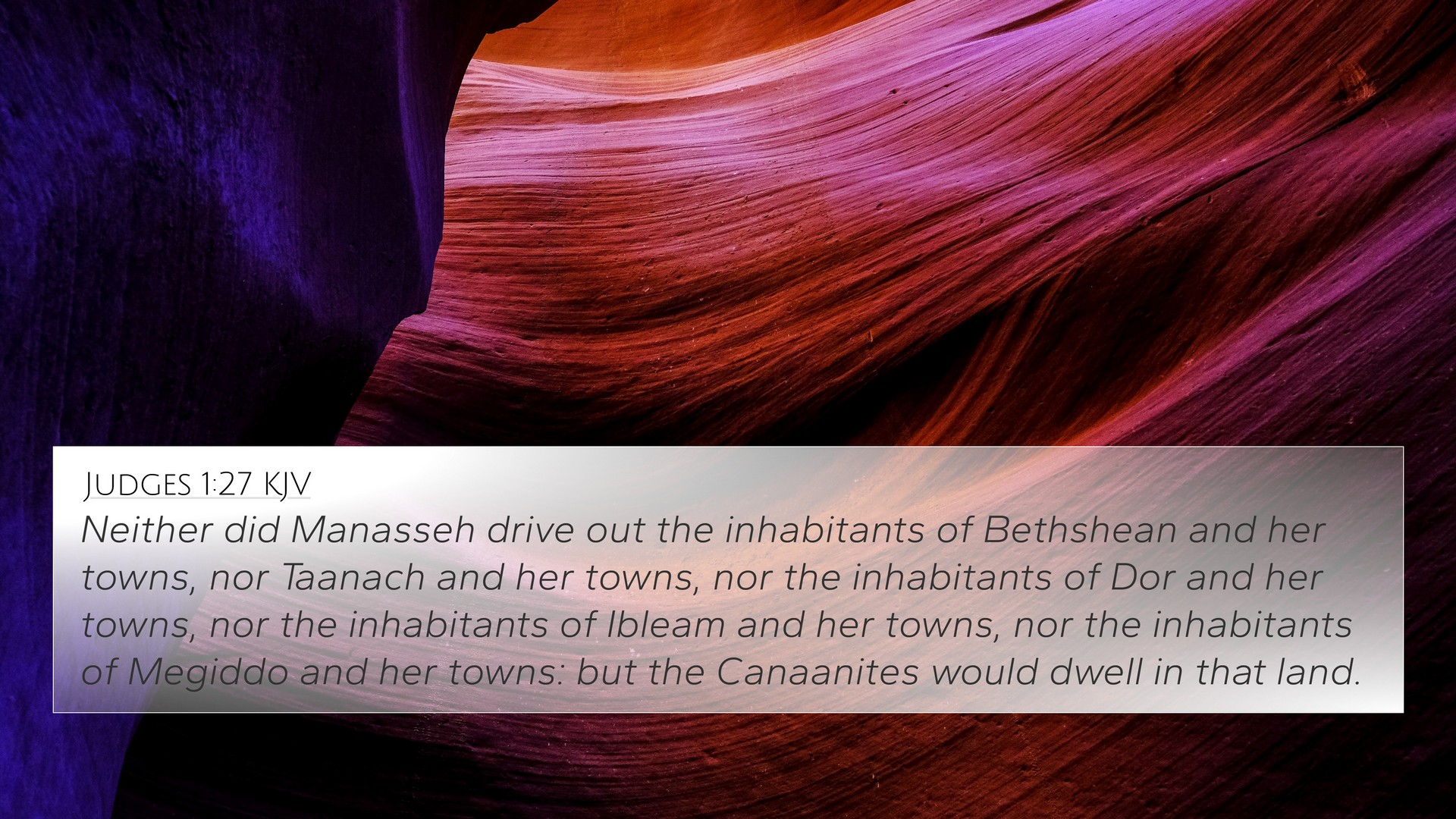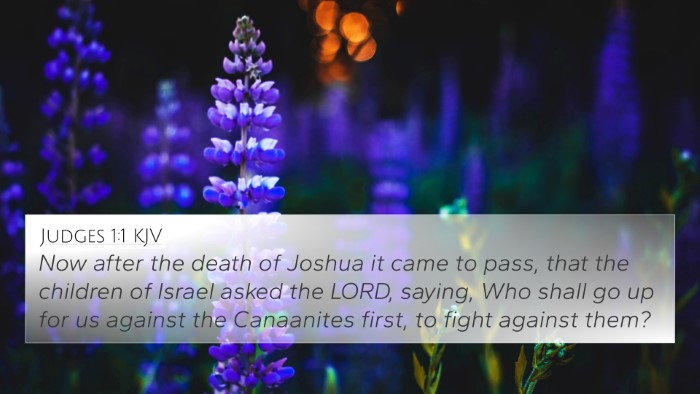Understanding Judges 1:27
Judges 1:27 states: "And Manasseh did not drive out the inhabitants of Bethshean and her towns, nor Taanach and her towns, nor the inhabitants of Dor and her towns, nor the inhabitants of Ibleam and her towns, nor the inhabitants of Megiddo and her towns: but the Canaanites would dwell in that land."
This verse serves as a critical observation on the incomplete conquest of Canaan by the tribes of Israel, specifically the tribe of Manasseh. Through insights from public domain commentaries, we can unpack the implications and lessons embedded within this scripture.
Summary and Insights
-
Failure to Drive Out Canaanites:
Commentators like Matthew Henry highlight that Manasseh's inability to drive out the Canaanites signifies a failure to fully follow God's commands. The Canaanites, as remnants of a defeated enemy, should have been removed for Israel to experience God's promised blessings. Their presence, therefore, symbolizes the failure to achieve a complete victory over sin and idolatry.
-
Geographical Significance:
Adam Clarke explains that the cities mentioned—Bethshean, Taanach, Dor, Ibleam, and Megiddo—were strategically located and heavily fortified, which likely contributed to the challenges faced by the Israelites. The failure to conquer these areas reflects broader spiritual implications about the struggle against entrenched sin and moral compromise.
-
Theological Implications:
According to Albert Barnes, the failure of Manasseh to purge the Canaanites exemplifies a broader trend in Israelite history, where partial obedience leads to long-term consequences. This narrative warns of the dangers of incompleteness in faith and relationships with God, as it invites continued strife and opposition.
-
Lessons on Disobedience:
This verse illustrates the results of disobedience to God's commands. The presence of the Canaanites in the land was a direct consequence of Israel's choices, reminding believers today of the importance of faithfulness and the pitfalls of compromise in their spiritual journey.
-
Connection to Other Biblical Texts:
This verse invites readers to draw parallels with other scripture passages, reinforcing the themes of obedience and divine judgment.
Bible Verse Cross-References
- Joshua 17:12-13: Provides context on Manasseh's struggles in defeating the Canaanites.
- Judges 2:2-3: God reminds Israel of the covenant and the consequences of their disobedience.
- 1 Samuel 15:23: Discusses the issue of rebellion as akin to the sin of divination.
- Romans 6:12: A New Testament reminder about not letting sin reign in our mortal bodies.
- Galatians 6:7-8: Explores the concept of reaping what one sows, especially in a spiritual context.
- Hebrews 10:26-27: The warning against willful sin after receiving knowledge of the truth.
- Revelation 3:15-16: Highlights the dangers of being lukewarm in faith.
Connecting Themes
The themes of incomplete obedience and its consequences find resonance not only in Judges but across the Bible. They compel readers to reflect on how this narrative continues to apply in contemporary faith contexts.
-
Tools for Bible Cross-Referencing:
Utilizing a Bible concordance or a Bible cross-reference guide can aid in exploring these themes further.
-
Cross-referencing Bible Study:
Engaging in cross-referencing Bible study deepens understanding of scriptural connections.
-
Identifying Connections:
By identifying connections between the Old and New Testament, believers can uncover deeper truths.
Conclusion
Judges 1:27 encapsulates a significant historical and spiritual lesson regarding disobedience and its lasting implications. By examining related scriptures, believers can gain a broader understanding of God's expectations and the nature of human compliance.
In conclusion, this verse serves as a cautionary tale about the dangers of half-hearted faith and the importance of adhering fully to God's commandments, ensuring that believers today strive for obedience and complete trust in God's plan.











